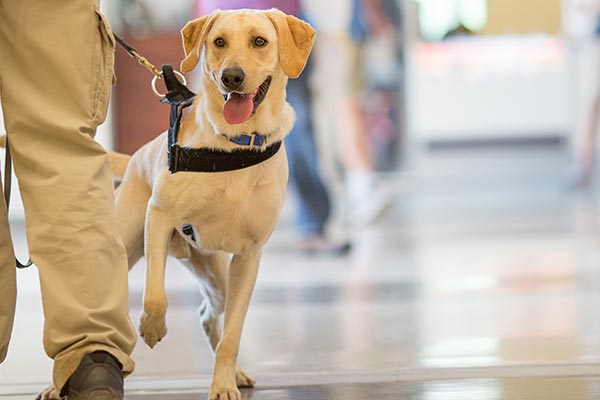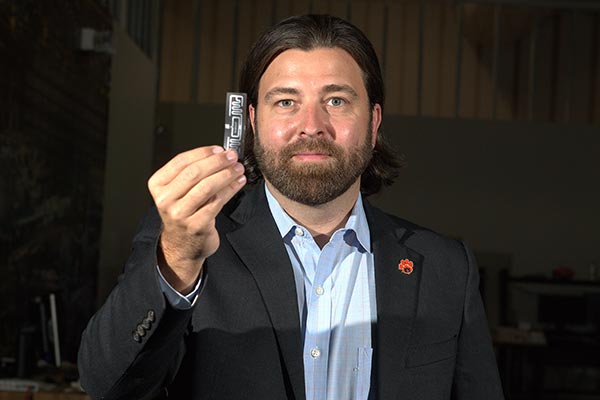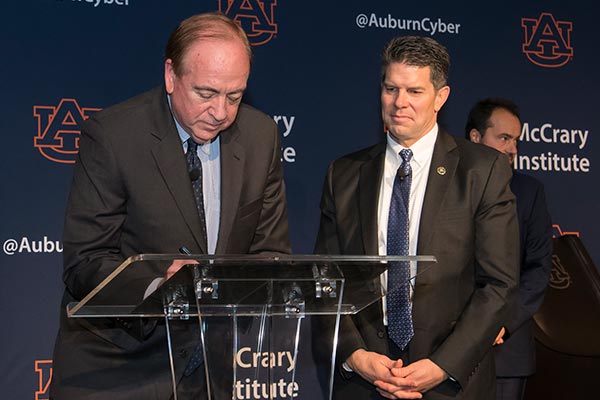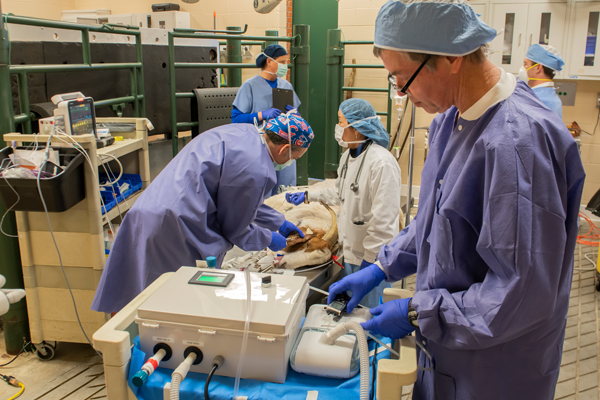Man’s best friend has long been known as the perfect companion. In exchange for food, water, and a pat on the head, a dog will love and defend its owner. Auburn University’s pioneering, collaborative research is enhancing the capabilities of dogs to protect us by their detection of hazardous substances. The Auburn Dog™ is internationally recognized as being of the highest quality and capability for the interdiction of chemical, biological and explosive threats in airports, train stations, sports arenas and on city streets.
What makes the Auburn Dog™ stand out among detector dogs? It’s the focus of the university’s multidisciplinary team in scientific investigation and continual improvement of the Auburn Dog™.
Almost every product has one, or soon will—a small radio frequency identification, or RFID, tag.
RFID uses a small tag with a chip that gives each product its own serial number identity, which is detected by a scanner 5 to 10 feet away. They’ve been used in retail stores in apparel for a decade, so you’ve probably bought hundreds of them on your items and didn’t even realize it. Now they are being added to electronics, sporting goods, toys and any items that are heavily researched online by consumers.
Auburn’s RFID Lab, led by Director Justin Patton, is studying these tiny tags to help businesses worldwide stop counterfeit products, improve inventory control and create more efficient supply chains.
Auburn University and the Federal Bureau of Investigation have a memorandum of understanding that will help the agency address its demand for a larger future workforce trained in such disciplines as STEM and foreign language.
The agreement calls Auburn a partner with the FBI as it expands its workforce and operations at Redstone Arsenal in Huntsville. The university will educate and train bureau employees, and provide the next generation of specialists to aid the agency. The FBI and Auburn will also share mutually beneficial information, research and technology that advances criminal justice and student and faculty opportunities.
Auburn University’s Hunger Solutions Institute has received a grant totaling more than $520,000 from the ECMC Foundation for a two-year pilot program in support of the Alabama Campus Coalition for Basic Needs. The goal of the new partnership between Auburn and the foundation is to help students succeed in higher education by supporting their basic nutritional needs.
The grant represents the first philanthropic investment at Auburn from the foundation, which works to improve education outcomes for students from underserved populations.
Auburn is establishing itself as a national leader in cyber and homeland security.
The McCrary Institute for Cyber and Critical Infrastructure Security seeks practical solutions to real-world problems, underpinned by research and scholarship.
Founded in 2015, the institute fuses theory with practice, and policy with technology, to protect and advance U.S. interests in the areas of cyber and critical infrastructure security. Globally renowned cyber expert and former Homeland Security official Frank Cilluffo serves as its director. He also leads the Center for Cyber and Homeland Security at Auburn, which is part of the McCrary Institute, and is a nonpartisan think tank that works to develop innovative strategies to address current and future threats to the United States.










